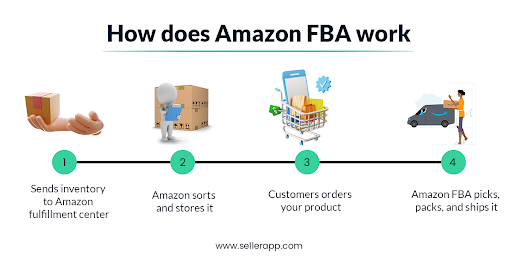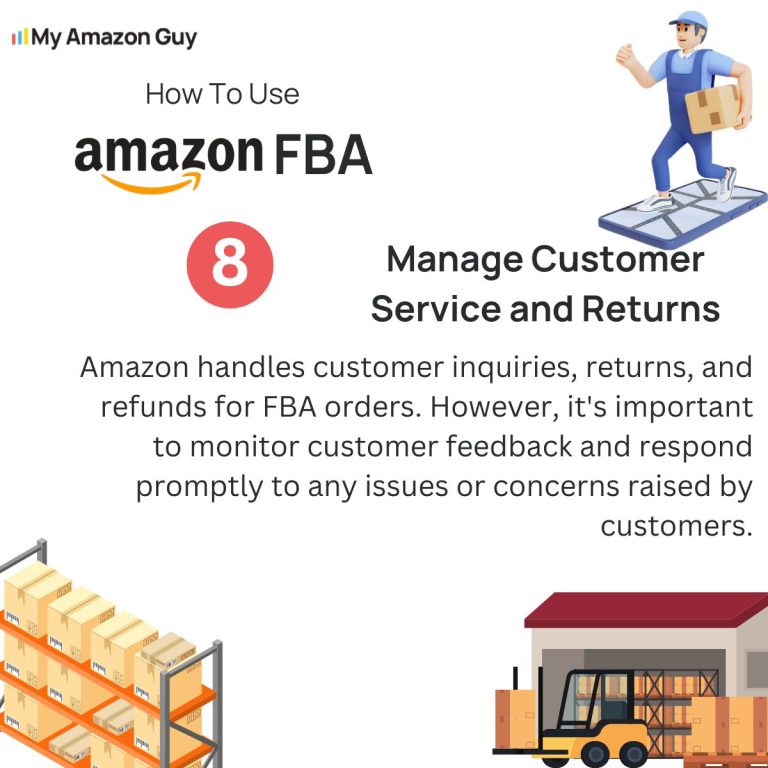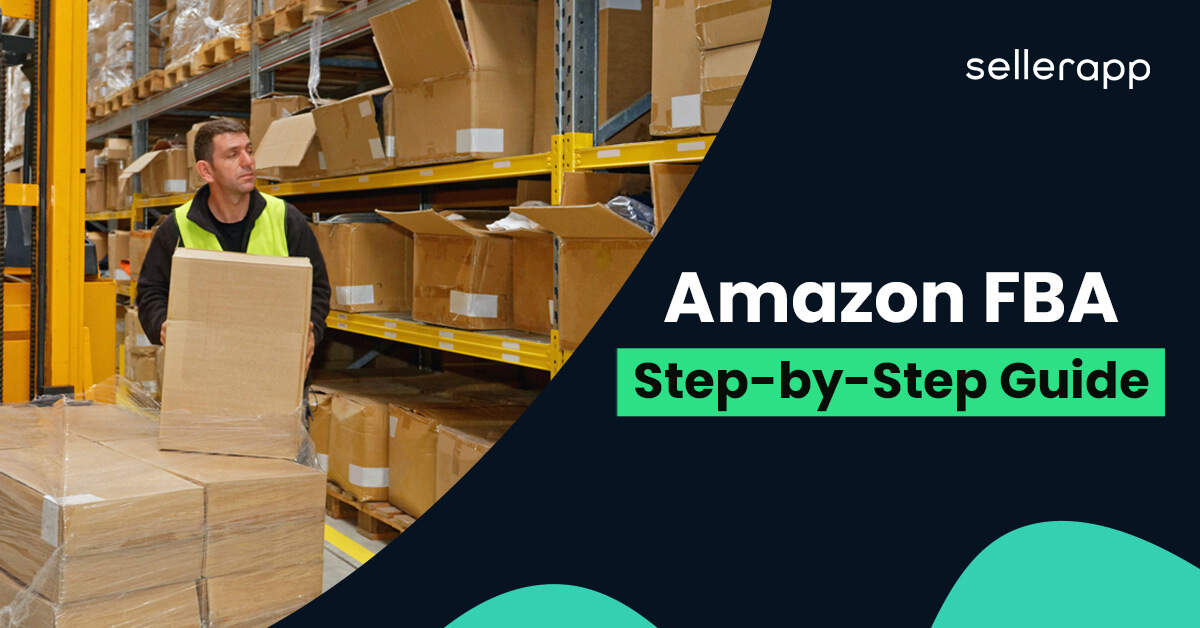Unlock the secrets to Amazon FBA success with this comprehensive beginner’s guide. Learn the tips and tricks to succeed!
Table of Contents
- Introduction to Amazon FBA
- How Amazon FBA Works
- Setting Up Your Amazon FBA Business
- The Benefits of Amazon FBA
- Costs Involved with Amazon FBA
- Learning the Ropes Through an Amazon FBA Course
- Amazon FBA Community on Reddit
- Common Challenges and Solutions
- Staying Informed: Keeping Up with Amazon FBA Changes
- Summary and Final Thoughts
- Frequently Asked Questions (FAQs)
Introduction to Amazon FBA
Have you ever thought about selling things online? Well, Amazon FBA, which stands for Fulfillment by Amazon, is a fantastic way to do just that! It’s like having your own virtual store where Amazon takes care of all the nitty-gritty details, so you can focus on growing your business. Let’s dive into what Amazon FBA is all about and why it’s a game-changer for anyone looking to sell things online.
Meet Amazon FBA
Amazon FBA is a service offered by Amazon where you, as a seller, send your products to Amazon’s warehouses. From there, Amazon takes care of storing your items, packaging them up when someone buys them, and shipping them out to customers. This means you don’t have to worry about storing inventory in your own home or dealing with the hassle of shipping orders – Amazon does it all for you!
Why Choose Amazon FBA?
Choosing Amazon FBA for your business comes with a host of benefits. First and foremost, it allows you to reach millions of potential customers through Amazon’s vast marketplace. Additionally, Amazon’s top-notch customer service and fast shipping options can help boost your sales and grow your business faster than if you were going it alone. Plus, with Amazon handling the logistics, you have more time to focus on finding great products and building your brand.
How Amazon FBA Works
Amazon FBA, or Fulfillment by Amazon, is a service that helps individuals and businesses sell their products online. Here’s a simple breakdown of how it works:
The Basic Steps
First, you need to choose products to sell on Amazon. Once you have your product selection ready, you send your inventory to Amazon’s warehouses. When a customer buys your product, Amazon takes care of packing and shipping it to them. They also handle customer service and returns, making your job easier!
Behind the Scenes
Ever wondered what happens at Amazon’s vast warehouses? Well, once your products arrive, Amazon stores them safely until they are sold. When an order is placed, Amazon employees pick, pack, and ship the item promptly to the customer. It’s like having your own team of workers handling the logistics for you!
Setting Up Your Amazon FBA Business
Starting an Amazon FBA business is an exciting venture that can open up a world of opportunities for aspiring entrepreneurs. The first step is to create an Amazon seller account, which will give you access to the Fulfillment by Amazon service.

Image courtesy of www.sellerapp.com via Google Images
Once you have your account set up, you’ll need to decide on the type of products you want to sell. It’s important to research popular categories on Amazon and consider your target audience’s needs and preferences.
Choosing Products to Sell
When selecting products to sell on Amazon FBA, it’s crucial to choose items that have a high demand and low competition. Look for products that are lightweight, small in size, and that can be sold at a competitive price.
Additionally, consider products that have good profit margins to ensure that you can make a sustainable income. Conduct market research to identify trending products and niches that align with your interests and expertise.
The Benefits of Amazon FBA
One of the biggest advantages of using Amazon FBA for your business is the hassle-free shipping process. When you sell products through FBA, Amazon takes care of all the shipping and handling for you. This means you don’t have to worry about packing orders, printing labels, or standing in line at the post office. Amazon’s advanced logistics system ensures that your products are delivered to customers quickly and efficiently, leaving you with more time to focus on growing your business.
Customer Service Management
Another benefit of Amazon FBA is the customer service support that comes with it. As an FBA seller, you can rely on Amazon to handle customer inquiries, returns, and refunds. This not only saves you time and effort but also ensures that your customers receive top-notch service. Amazon’s reputation for excellent customer service can help build trust with your buyers and encourage repeat business.
Costs Involved with Amazon FBA
When you decide to use Amazon FBA to sell your products, there are certain fees that you need to consider. Amazon charges fees for various services it provides to FBA sellers. These include storage fees, fulfillment fees, and referral fees.

Image courtesy of myamazonguy.com via Google Images
Storage fees are charged based on the space your products occupy in Amazon’s warehouses. The longer your products stay in the warehouse, the higher the storage fees will be. Fulfillment fees are for the picking, packing, and shipping of your products to customers. Referral fees are charged as a percentage of the selling price of your products. It’s essential to factor in these fees when pricing your items to ensure you make a profit.
Managing Your Budget
One way to keep your costs down while using Amazon FBA is to carefully plan your inventory. Avoid holding onto excess stock for too long, as this can lead to higher storage fees. Regularly monitor your inventory levels and adjust them based on demand to optimize your storage costs.
Another tip for managing your budget is to choose your products wisely. Look for items that have a good profit margin but also consider the fees involved in selling them through Amazon FBA. Conduct thorough research on pricing, shipping costs, and fees to ensure that you can make a profit on the products you choose to sell.
Learning the Ropes Through an Amazon FBA Course
For those just starting out in the world of online selling, diving into Amazon FBA can seem like a daunting task. That’s where an Amazon FBA course can come in handy! These courses are designed to help beginners understand the ins and outs of using Amazon FBA to run a successful online business.
Finding the Right Course
When looking for an Amazon FBA course, it’s essential to do your research. Not all courses are created equal, so take the time to read reviews and recommendations from other sellers. Look for courses that cover topics like product selection, sourcing, pricing, and marketing strategies. A good course will also provide hands-on experience and practical exercises to help you apply what you’ve learned.
| Chapter | Title |
|---|---|
| 1 | Introduction to Amazon FBA |
| 2 | Setting up an Amazon Seller Account |
| 3 | Finding Profitable Products to Sell |
| 4 | Sourcing Products for Amazon FBA |
| 5 | Creating Amazon FBA Shipping Plans |
| 6 | Optimizing Product Listings for Amazon SEO |
| 7 | Managing Customer Returns and Feedback |
| 8 | Scaling Your Amazon FBA Business |
The Benefits of Taking a Course
Enrolling in an Amazon FBA course can provide you with valuable knowledge and skills that are crucial for running a successful online business. These courses typically cover everything from setting up your seller account to optimizing product listings for better visibility. You’ll also learn about inventory management, customer service best practices, and how to grow your business on the Amazon platform.
Amazon FBA Community on Reddit
Reddit is a vast online platform where people from all walks of life come together to share information, ask questions, and connect with like-minded individuals. When it comes to Amazon FBA, Reddit has a vibrant community dedicated to helping newcomers navigate the world of online selling. Let’s delve into how the Amazon FBA community on Reddit can be a valuable resource for beginners like you.

Image courtesy of www.sellerapp.com via Google Images
Why Join the Community?
Engaging with the Reddit Amazon FBA community can provide you with firsthand insights, tips, and strategies from experienced sellers. By joining discussions, asking questions, and participating in threads, you can learn from the successes and setbacks of others in the Amazon FBA space. Whether you need advice on product sourcing, marketing techniques, or dealing with customer issues, the Reddit community is there to offer guidance and support.
Community Etiquette
When interacting with the Amazon FBA community on Reddit, it’s essential to follow certain etiquette guidelines to foster a positive and constructive environment. Be respectful of others’ opinions, avoid self-promotion or spamming, and always adhere to the group’s rules and regulations. Remember, the Reddit community is built on the principles of mutual respect and sharing knowledge, so contribute thoughtfully and engage in conversations with an open mind.
Common Challenges and Solutions
One common challenge for new Amazon FBA sellers is managing their inventory effectively. It can be tricky to keep track of stock levels, especially when dealing with multiple products. However, there are solutions to help overcome this hurdle.
One solution is to use inventory management software. This type of tool can help you keep tabs on your inventory levels, alerting you when stock is running low and even automating the reordering process. By utilizing such software, you can streamline your inventory management and avoid stockouts that could lead to missed sales opportunities.
Navigating Competition
Another challenge that many FBA sellers face is navigating the competitive landscape on Amazon. With countless sellers vying for attention, standing out can be tough. But fear not, there are strategies to help you stay competitive.
One effective solution is to conduct thorough market research. By understanding your competitors, their pricing strategies, and customer reviews, you can identify opportunities to differentiate your products. This could involve offering unique product variations, improving your product descriptions, or running targeted marketing campaigns to reach your ideal customers.
By addressing these common challenges head-on and implementing proactive solutions, you can set yourself up for success as an Amazon FBA seller. Remember, with perseverance and a strategic approach, you can overcome obstacles and thrive in the competitive world of e-commerce.
Staying Informed: Keeping Up with Amazon FBA Changes
As an Amazon FBA seller, it’s crucial to stay informed about any updates or changes in Amazon’s policies. These changes can directly impact your business operations, fees, and overall success on the platform. By staying ahead of the curve, you can adapt your strategies and business practices to align with Amazon’s latest requirements.

Image courtesy of www.sellerapp.com via Google Images
How to Stay Updated
To keep abreast of Amazon FBA changes, there are several reliable sources you can turn to. First and foremost, regularly checking Amazon’s official seller forums and announcement pages can provide you with direct updates from the source. Additionally, subscribing to industry newsletters and blogs that focus on e-commerce and Amazon FBA can keep you informed about broader trends and developments.
Summary and Final Thoughts
After diving into the world of Amazon FBA, it’s clear why this business model is so popular among entrepreneurs. Amazon FBA, or Fulfillment by Amazon, offers a hassle-free way to sell products online and reach millions of customers worldwide. For those considering starting an e-commerce business, Amazon FBA is a top choice.
Throughout this guide, we’ve discussed what Amazon FBA is and the benefits it offers to sellers. From hassle-free shipping to effective customer service management, Amazon FBA streamlines the process of running an online business. For those looking to kickstart their entrepreneurial journey, Amazon FBA presents a lucrative opportunity.
Setting up an Amazon FBA business involves selecting the right products to sell and managing costs efficiently. By carefully choosing products that have high demand and low competition, sellers can increase their chances of success on the platform. Additionally, understanding and managing the various fees associated with Amazon FBA is essential for maintaining a profitable business.
For those new to Amazon FBA, taking an online course can provide valuable insights and knowledge to navigate the platform effectively. Finding the right course and absorbing the information it offers can set sellers on the path to success. Likewise, engaging with the Amazon FBA community on Reddit can offer support, advice, and camaraderie throughout the journey.
As new FBA sellers face common challenges like inventory management and competition, it’s crucial to stay informed and adaptable. By staying updated with Amazon FBA changes and best practices, sellers can remain competitive in the ever-evolving e-commerce landscape.
In conclusion, Amazon FBA presents a world of opportunities for aspiring online sellers. By understanding the basics of Amazon FBA, leveraging the benefits it offers, and staying informed and connected within the community, sellers can set themselves up for success in the competitive e-commerce market. So, if you’re considering starting an online business, Amazon FBA could be the way to go!
Frequently Asked Questions (FAQs)
What is Amazon FBA?
Amazon FBA stands for Fulfillment by Amazon. It’s a service provided by Amazon where you can store your products in Amazon’s warehouses. When a customer places an order, Amazon picks, packs, and ships the product to the customer on your behalf.
How much does it cost to start an Amazon FBA business?
Starting an Amazon FBA business can cost between $2,000 to $10,000 or more, depending on the products you choose to sell, the quantity of inventory you want to start with, and other initial expenses like product photography and branding.
Can you really make money with Amazon FBA?
Yes, you can make money with Amazon FBA. The key to success lies in choosing the right products, effectively marketing your products, and providing excellent customer service. The amount of money you can make varies based on your product selection, pricing strategy, and market demand.
